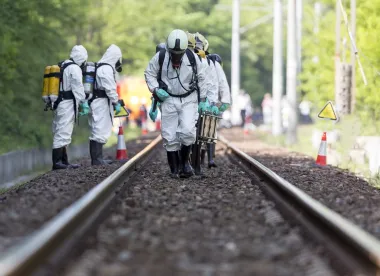The U.S. Supreme Court agreed on June 10, 2019, to review a case involving “immensely important” questions regarding clean-up activities required by the U.S. Environmental Protection Agency (EPA) under the Comprehensive Environmental Response, Compensation and Liability Act (CERCLA). In Atlantic Richfield Co. v. Christian Atlantic Richfield (ARCO) is seeking to overturn a decision by the Montana Supreme Court allowing property owners to seek in Montana state court restoration damages that went beyond a clean-up plan determined and mandated by the EPA. The EPA clean-up plan concerned the massive and historic Anaconda Smelter copper mining contamination that impacted more than 300 square miles, including residential communities. The EPA clean-up plan was ultimately agreed to by Anaconda’s successor, ARCO, after a lengthy and exhaustive remediation investigation and a Record of Decision consisting of more than 1,300 pages.
ARCO’s Petition for Writ of Certiorari argues that the decision by the Montana Supreme Court to allow private landowners to seek additional remediation is preempted by federal law and contradicts multiple decisions of Federal Courts of Appeal interpreting CERCLA. Arguing that the Montana Court’s holding was simply “wrong,” ARCO states that the reasoning is inconsistent with CERCLA’s text structure and design. The likely result, according to ARCO, would be “chaos” and disincentives for polluters to cooperate with the EPA in future clean-ups. Although the federal government agreed with ARCO that the Montana Supreme Court decision was “erroneous” for multiple reasons, the government requested that ARCO’s petition should be denied due to the “interlocutory posture” of the case. Nonetheless, the U.S. Supreme Court granted the petition.
The questions presented in the petition are whether:
- A common-law claim for restoration seeking clean-up remedies that conflict with remedies the EPA ordered is a jurisdictionally barred “challenge” to the EPA’s clean-up under 42 U.S.C. § 9613 of CERCLA
- A landowner at a Superfund site is a “potentially responsible party” that must seek EPA approval under 42 U.S.C. § 9622(e)(6) of CERCLA before engaging in remedial action, even if the EPA has never ordered the landowner to pay for a cleanup
- CERCLA preempts state common-law claims for restoration that seek clean-up remedies that conflict with EPA-ordered remedies.
We will continue to watch this case, which according to the Petitioner involves “one of the most consequential decisions interpreting CERCLA in years.”



 />i
/>i
